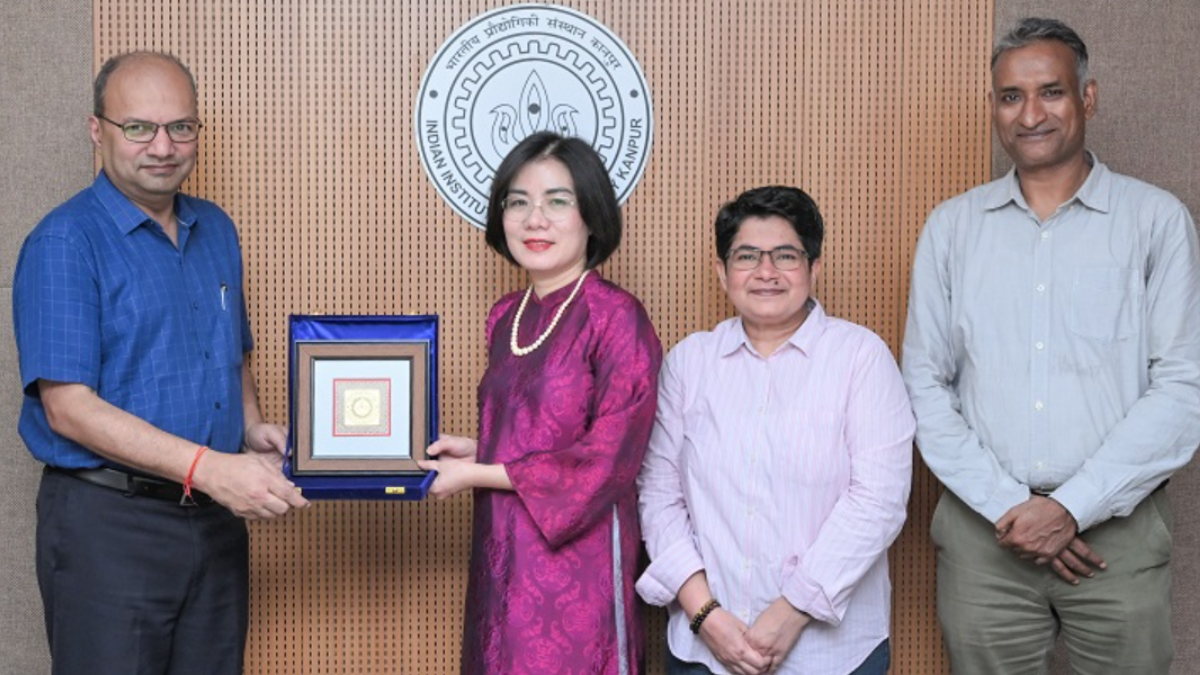IIT Kanpur and Vietnam National University have joined forces through a new Memorandum of Understanding aimed at advancing collaborative research in artificial intelligence, smart cities, materials science, and drone technology.
Signed in mid-September 2025 during a visit by a VNU delegation to IIT Kanpur, the agreement sets the stage for joint innovation that can directly impact healthcare, infrastructure, and agriculture in both India and Vietnam.
Advancing research with clear goals
The agreement outlines a structured framework that goes beyond academic exchange to deliver practical solutions to real-world challenges. As part of the collaboration, both institutions will develop joint projects, promote student and faculty exchanges, and share advanced research infrastructure.
Priority areas include artificial intelligence for medical diagnosis, hospital system digitisation tailored to Vietnam, and AI-driven education and language technologies. The partnership also focuses on AI-assisted defect detection for civil structures, smart city development, and predictive material research such as carbon–carbon applications.
In addition, drone technology will be explored for disaster response and agriculture, ensuring that the outcomes address urgent public needs while staying rooted in industry requirements.
Also Read: Gemini becomes the leading free app taking over ChatGPT’s spot
Leaders, delegation, and site visits
The signing ceremony at IIT Kanpur was attended by senior leadership from both sides. Representing IIT Kanpur were Director Prof. Manindra Agrawal, Dean of International Relations Prof. Bushra Ateeq, and Prof. Ashish Garg, Head of Sustainable Energy Engineering.
The Vietnam National University team was led by Vice Rector Dr. Nguyen Thu Huong, along with Prof. Nguyen Dinh Duc and Dr. Tran Quoc Quan. The collaboration builds on prior engagement, particularly Prof. Garg’s visit to Hanoi in June 2025, where early foundations for cooperation were laid.
During their visit, the VNU delegation toured key research facilities, including the Helicopter and VTOL Lab, the Startup Innovation and Incubation Centre, and the Smart Grid Control Centre.
These visits were instrumental in aligning VNU’s goals with IIT Kanpur’s strengths, helping identify concrete project pathways across sustainable energy, artificial intelligence, and advanced engineering systems.
Why the partnership matters
Both institutions emphasised that the partnership is designed to strengthen research capacity, enhance student and faculty opportunities, and accelerate technology transfer. The collaboration is expected to address pressing challenges such as digital hospital systems, resilient infrastructure monitoring, and smarter urban management through an applied research approach.
IIT Kanpur’s established expertise in environmental engineering, sustainable energy, artificial intelligence, and drone technology positions the institution as a strong partner for Vietnam’s future urban and healthcare development.
Beyond technical collaboration, the MoU carries broader significance in deepening education and research ties between India and Vietnam. It aligns with regional cooperation goals, creating opportunities for innovation in healthcare delivery, city infrastructure, agriculture, and advanced materials while strengthening academic links across borders.
Also Read: Nagaland survey finds one in six residents unemployed and lacking skills
What happens next
Immediate plans include calls for joint research proposals, structured exchange programmes, and direct collaborations between research laboratories at both institutions. The aim is to transition quickly from framework agreements to tangible outcomes, including pilot projects in Vietnam.
Anticipated results include co-authored research publications, hands-on demonstrations, and student-led innovation sprints. With strong institutional backing and technical expertise already mobilised, the partnership is well positioned to develop prototypes and solutions that can be applied directly in communities, ensuring that research advancements translate into meaningful impact across the agreed priority areas.




